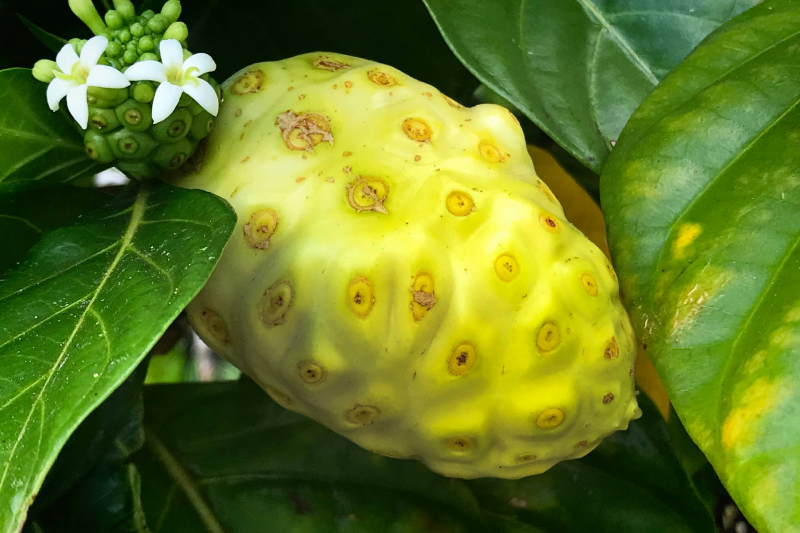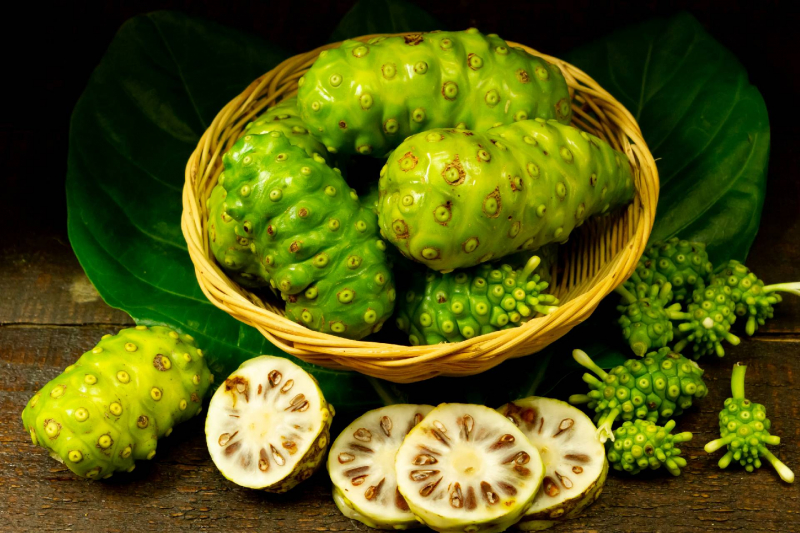Noni

Noni, botanically classified as Morinda citrifolia, is a tropical fruit that grows on evergreen trees reaching 3 to 9 meters in height, belonging to the Rubiaceae family. Noni trees have historically been regarded as life-giving trees since the fruit, leaves, and bark are used for medicinal, cultural, and ceremonial purposes. In Jamaica, volcanic soil is the best condition for the growth of this fruit. People consider it a miracle fruit because it contains many nutrients that are good for healing asthma and cancer. It is used widely in the medical field.
Noni fruit typically has an uneven, oval to oblong form and is small to medium in size, measuring 5 to 10 centimeters in length and 3 to 4 centimeters in diameter. The fruits are lumpy and slightly rough, and they have numerous small, angular, flat faces with light brown spots on each face. The flesh of unripe noni fruits is extremely solid, fibrous, and tough, with a thin, firm skin that ranges in color from light to dark green. The fruit's flesh softens into a luscious, tomato-like consistency as it ripens, while the skin of the fruit transforms into a translucent yellow-white color. Numerous oval red-brown seeds are also contained in the meat. The flesh and juice also contain this strong smell and have a somewhat distinct, bitter, sharp, and acidic flavor.











